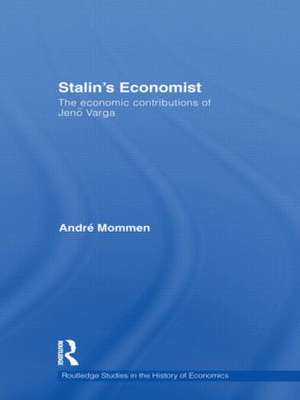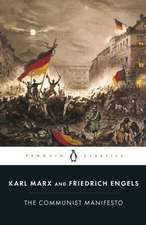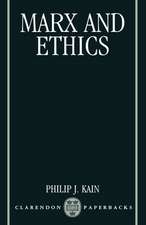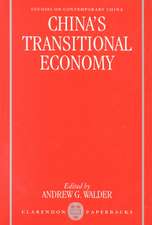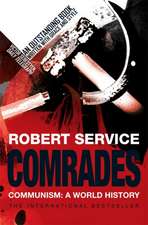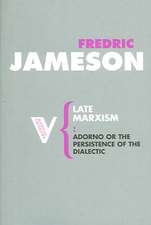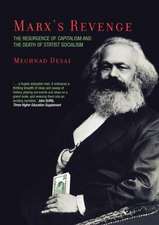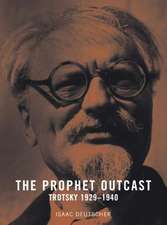Stalin's Economist: The Economic Contributions of Jenö Varga: Routledge Studies in the History of Economics
Autor André Mommenen Limba Engleză Hardback – 24 feb 2011
Varga became the Soviet Union’s official propagandist. As an economic specialist he would advise the Soviet government on German reparation payments and, unlike Stalin, believed that the capitalist state would be able to plan post-war economic recovery, which contradicted Stalin’s foreign policy strategy and led to his disgrace. Thus by the beginning of the Cold War in 1947, Varga was discredited, but allowed to keep a minor academic position. After Stalin’s death in 1953 he reappeared as a well-respected economist whose political influence had nonetheless waned.
In this study Mommen reveals how Stalin’s view on international capitalism and inter-imperialist rivalries was profoundly influenced by debates in the Comintern and by Varga’s concept of the general crisis of capitalism. Though Stalin appreciated Varga’s cleverness, he never trusted him when making his strategic foreign policy decisions. This was clearly demonstrated in August 1939 with Stalin’s pact with Hitler, and in 1947, with his refusal to participate in Marshall’s European Recovery Plan.
This book should be of interest to a wide variety of students and researchers, including those concentrating on the history of economic thought, Soviet studies, international relations, and European and Cold War history.
Din seria Routledge Studies in the History of Economics
-
 Preț: 370.72 lei
Preț: 370.72 lei -
 Preț: 294.95 lei
Preț: 294.95 lei - 8%
 Preț: 385.83 lei
Preț: 385.83 lei -
 Preț: 311.28 lei
Preț: 311.28 lei - 9%
 Preț: 934.73 lei
Preț: 934.73 lei -
 Preț: 665.68 lei
Preț: 665.68 lei - 9%
 Preț: 935.39 lei
Preț: 935.39 lei -
 Preț: 384.63 lei
Preț: 384.63 lei -
 Preț: 280.74 lei
Preț: 280.74 lei -
 Preț: 326.99 lei
Preț: 326.99 lei -
 Preț: 311.91 lei
Preț: 311.91 lei -
 Preț: 214.15 lei
Preț: 214.15 lei -
 Preț: 310.43 lei
Preț: 310.43 lei -
 Preț: 326.82 lei
Preț: 326.82 lei -
 Preț: 308.97 lei
Preț: 308.97 lei -
 Preț: 324.46 lei
Preț: 324.46 lei -
 Preț: 388.22 lei
Preț: 388.22 lei -
 Preț: 385.11 lei
Preț: 385.11 lei - 26%
 Preț: 850.91 lei
Preț: 850.91 lei - 25%
 Preț: 996.92 lei
Preț: 996.92 lei - 18%
 Preț: 1005.01 lei
Preț: 1005.01 lei - 18%
 Preț: 1002.60 lei
Preț: 1002.60 lei - 26%
 Preț: 1046.46 lei
Preț: 1046.46 lei - 18%
 Preț: 1280.31 lei
Preț: 1280.31 lei - 18%
 Preț: 1055.51 lei
Preț: 1055.51 lei - 18%
 Preț: 1058.43 lei
Preț: 1058.43 lei - 26%
 Preț: 987.72 lei
Preț: 987.72 lei - 25%
 Preț: 824.17 lei
Preț: 824.17 lei - 18%
 Preț: 1061.93 lei
Preț: 1061.93 lei - 18%
 Preț: 716.32 lei
Preț: 716.32 lei - 18%
 Preț: 1006.07 lei
Preț: 1006.07 lei - 18%
 Preț: 1069.92 lei
Preț: 1069.92 lei - 12%
 Preț: 342.67 lei
Preț: 342.67 lei - 26%
 Preț: 991.34 lei
Preț: 991.34 lei - 18%
 Preț: 1056.00 lei
Preț: 1056.00 lei - 18%
 Preț: 1076.53 lei
Preț: 1076.53 lei - 18%
 Preț: 698.08 lei
Preț: 698.08 lei - 22%
 Preț: 332.02 lei
Preț: 332.02 lei - 18%
 Preț: 1169.78 lei
Preț: 1169.78 lei - 18%
 Preț: 1059.84 lei
Preț: 1059.84 lei - 25%
 Preț: 852.88 lei
Preț: 852.88 lei - 25%
 Preț: 830.10 lei
Preț: 830.10 lei - 18%
 Preț: 1125.78 lei
Preț: 1125.78 lei - 18%
 Preț: 1062.98 lei
Preț: 1062.98 lei - 18%
 Preț: 847.96 lei
Preț: 847.96 lei - 18%
 Preț: 953.01 lei
Preț: 953.01 lei - 18%
 Preț: 1168.76 lei
Preț: 1168.76 lei
Preț: 851.10 lei
Preț vechi: 1142.41 lei
-25% Nou
Puncte Express: 1277
Preț estimativ în valută:
162.88€ • 166.80$ • 135.49£
162.88€ • 166.80$ • 135.49£
Carte tipărită la comandă
Livrare economică 19 martie-02 aprilie
Preluare comenzi: 021 569.72.76
Specificații
ISBN-13: 9780415575164
ISBN-10: 0415575168
Pagini: 298
Ilustrații: 1 b/w image, 3 tables and 1 halftone
Dimensiuni: 156 x 234 x 20 mm
Greutate: 0.64 kg
Ediția:1
Editura: Taylor & Francis
Colecția Routledge
Seria Routledge Studies in the History of Economics
Locul publicării:Oxford, United Kingdom
ISBN-10: 0415575168
Pagini: 298
Ilustrații: 1 b/w image, 3 tables and 1 halftone
Dimensiuni: 156 x 234 x 20 mm
Greutate: 0.64 kg
Ediția:1
Editura: Taylor & Francis
Colecția Routledge
Seria Routledge Studies in the History of Economics
Locul publicării:Oxford, United Kingdom
Public țintă
Postgraduate and UndergraduateCuprins
Introduction 1. The Making of a Marxist 2. The Making of a Bolshevik 3. Economist of the Comintern (1920-8) 4. Between Bukharin and Stalin (1928-30) 5. The Agrarian Question 6. In Berlin (1924-7) 7. The General Crisis of Capitalism 8. A Depression of a Special Kind 9. Surviving the Stalinist Purges 10. Two World Systems 11. Reparation Payments and Marshall Plan (1941-7) 12. The Varga Controversy 13. Adviser to Rákosi 14. Writing a Textbook 15. Problems of Monopoly Capitalism Epilogue
Notă biografică
André Mommen obtained a Ph.D. in Political Science from the Free University Brussels, Belgium, where he went on to lecture before moving to the Department of Political Science at the University of Amsterdam, Netherlands.
Descriere
This book analyses the contribution of Eugen (Jenő) Varga (1879-1964) on Marxist-Leninist economic theory as well as the influence he exercised on Stalin’s foreign policy and through the Comintern on the international communist movement.
